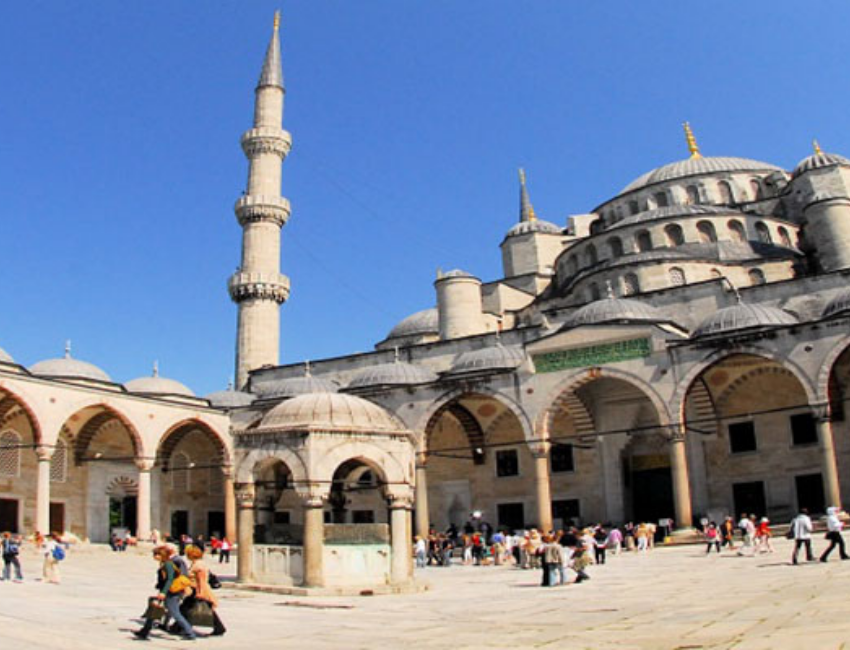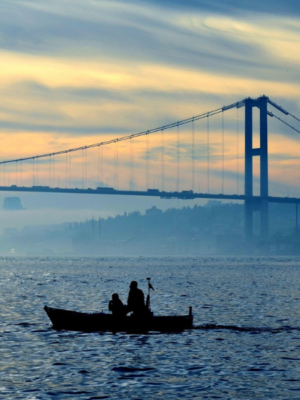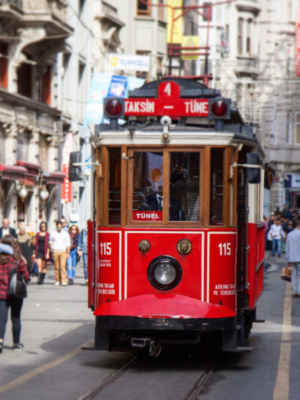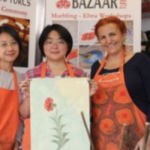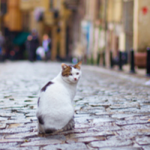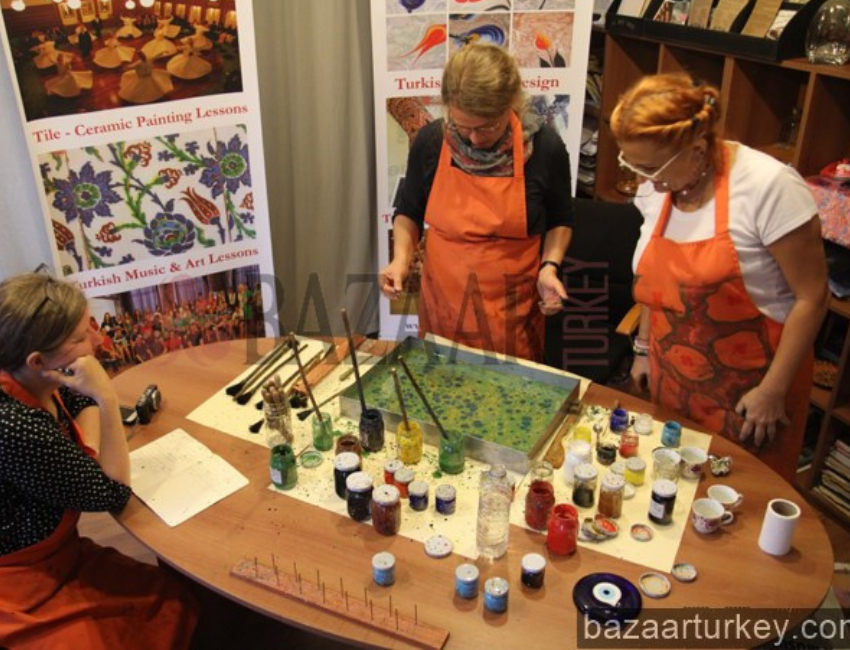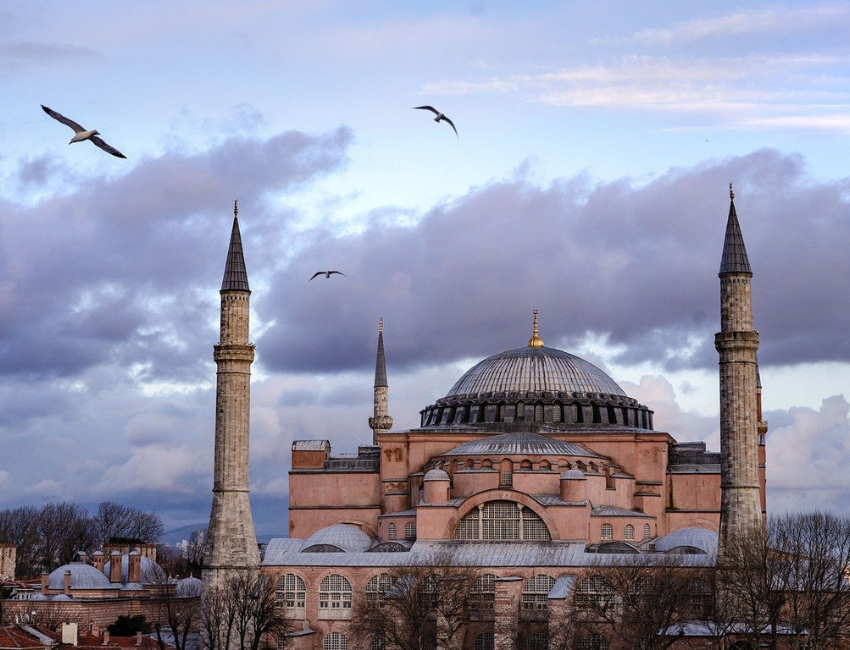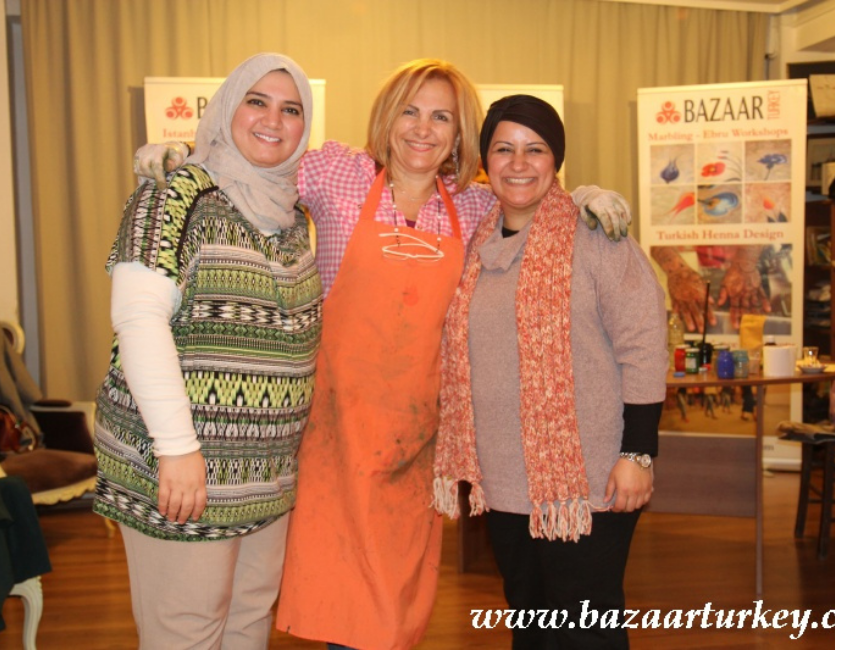Articley By : Blogger Audrey
http://thatbackpacker.com/2013/12/09/50-things-to-do-in-istanbul-turkey/
(1) Visit the Spice Bazaar. This is the second largest covered market after the Grand Bazaar. Here you’ll be able to pick up spices, nuts, dried fruit, Turkish coffee, loose leaf tea, and even Turkish delight!
(2) Go to a whirling dervish show. Turkey is home to the Mevlevi Order of Sufi whirling dervishes. The dervishes spin themselves into a trance-like state that brings them closer to God, and it’s a unique religious ceremony to witness.
(3) Listen to the call of prayer between the Blue Mosque and Hagia Sophia. The most beautiful call of prayer I listened to took place between the Blue Mosque and Hagia Sophia (which although is no longer a mosque, still keeps a prayer room). One muezzin would sing out part of the prayer and then the second muezzin would respond from the other minaret. It was a magical thing to experience, so if you find yourself in the area during prayer time, I suggest you grab a seat at one of the park benches and just listen.
Kumpir, a loaded baked potato that is a popular dish in Turkey.
(4) Eat a kumpir. A kumpir is a loaded baked potato. The server will mix the potato with cheese and butter until it’s light and fluffy, and then you can choose from an assortment of toppings including olives, hot dogs, pickles, corn, peas, bulgur and more. It’s the perfect snack to go.
(5) Get naked at a hamam. If you’re ready to shed your inhibitions, then head over to the Turkish bath. For the full experience you’ll want to opt in for the body scrub and massage. Don’t worry, the hamam is segregated into male and female only areas.
(6) Ride the red street car. One way to see Istiklal Avenue without having to weave your way through the crowds is to ride the streetcar from one end of the strip to another. The streetcar has a decidedly vintage feel and it makes for a pleasant journey through Istanbul’s shopping hub.
Fishermen on Galata Bridge with Galata Tower in the background.
(7) Walk across Galata Bridge. Yes, you could very well ride the light rail across, but if you choose to walk, you’ll get to see all the locals fishing from the bridge, the vendors selling sesame covered pretzels, and the boats carrying passengers down the Bosphorus.
(8) Eat a sesame seed covered pretzel. You can pick up one of these tasty pretzels at any bakery in town, but I suggest you grab one from the little red stands along Istiklal Avenue. It just adds to the experience.
(9) Take a boat tour down the Bosphorus. If you only have a few brief days in the city and you know you won’t be able to cover all of the main attractions, taking a cruise down the Bosphorus is a great way to get a glimpse of Istanbul’s main points of interest. You’ll ride past Dolmabahçe Palace, the Rumeli Ruins, the Maiden’s Tower, and many mosques, mansions, and gardens along the way.
(10) Order Turkish chicken breast pudding. There is nothing appetizing about the thought of this dish. Chicken for dessert? Well…yes, but before you protest, let me tell you that you can’t actually taste the chicken. Tavuk Göğsü, as the dish is known, is prepared by boiling chicken breast in water and then shredding the meat into small fibrous pieces. The meat is then boiled again, this time with milk, sugar, vanilla, cornstarch and rice flour. The end result is a sweet pudding which you can top off with a sprinkling of cinnamon.
A tulip-shaped glass for Turkish tea.
(11) Drink Turkish tea. If you come to Istanbul you have to drink tea out of a tulip-shaped glass. Turkish tea is prepared in a rather unique way using a teapot that has two level: one to boil the water, and the other to brew the tea. You then pour the tea into the glass and dilute it with the hot water so that it’s made to your taste.
(12) Eat börek. Börek is a traditional Turkish pastry made of flaky dough. It can be stuffed with feta cheese or minced meat as a savoury treat, or if you prefer something sweeter, you can eat it plain with a little bit of icing sugar sprinkled overtop.
(13) Marvel at Hagia Sophia. This architectural wonder has a long history which has seen it go from Eastern Orthodox cathedral, to Roman Cathedral, back to Eastern Orthodox cathedral, to mosque, and now it’s a museum. The exterior may not seem too impressive, but once you’re inside and you catch a glimpse of the heavenly domes and ancient mosaics, you will be in awe.
(14) Visit Little Hagia Sophia. The Church of the Saints Sergius and Bacchus, also known as Little Hagia Sophia, is a former Eastern Orthodox church. It is believed that this church was built as an architectural experiment by the same architects who would go on to build Hagia Sophia shortly after. Better test things out on a smaller scale before committing to the main project, right?
The tear drop column inside the Basilica Cistern in Istanbul, Turkey.
(15) Go underground at the Basilica Cistern. The Basilica Cistern is the largest of the ancient underground water cisterns found across Istanbul. Most of the columns in the cistern appear to have been recycled from the ruins of other buildings, and among them you’ll find two carvings of Medusa’s head used as column bases, as well as a column with tear shaped engravings believed to have the power to make your wishes come true.
(16) Sample Turkish delight. Also known as lokum to locals, Turkish delight is a popular gummy treat. The best place to sample Turkish delight is at Hafiz Mustafa, where you can choose from flavours that include rose, cinnamon, mint, strawberry, lemon, orange, kiwi, pomegranate and apple. Trust me, you won’t be disappointed!
(17) Indulge your sweet tooth with baklava. The Turks really know what they are doing when it comes to sweets. Baklava is made with layers of phyllo pastry filled with chopped nuts and sweetened with syrup or honey. Forget the scones and clotted cream; this is what you need at tea time!
(18) Drink a glass of Ayran. This is one of those drinks that you either love or hate. Ayran is considered the national drink in Turkey and it is a cold yogurt beverage mixed with salt. It’s especially popular during the summer months.
Turkish flags inside the Grand Bazaar in Istanbul, Turkey.
(19) Test your bargaining skills at the Grand Bazaar. Istanbul’s Grand Bazaar is a place for serious shoppers. With more than 3,000 shops and covering an estimated 61 streets, this place is dizzying yet so worth a visit. You’ll notice that some streets specialize in certain goods with those shops selling nothing but leather, silverware, carpets, ceramics or spices. There will be lots of glittery things to catch your eye, so you may want to come prepared to spend.
(20) Smoke hookah. Argilah, nargile, sheesha, hubbly bubbly – whatever you call it, there is an ample supply of hookah bars in Istanbul where you can lounge around while you smoke the water pipe and sip on a class of tea or coffee.
(21) Eat a doner. Doner is a Turkish dish made with meat cooked on a spinning vertical rotisserie. The meat can be lamb, beef, or chicken, and it’s served in a pita with vegetables and a few toppings. It’s a tasty and affordable lunch which you can find in any part of the city.
(22) Enjoy the view from Galata Tower. Located in Beyoğlu, this tower looks like it would be better suited as Rapunzel’s home in a fairy tale. There is something magical about the pointed cylindrical roof, and the views from the outer balcony are breathtaking.
Glass mosaic lamps – the perfect souvenir from your visit to Istanbul!
(23) Buy yourself a glass lamp. The colourful glass lamps you’ll see hanging in almost every establishment in the city make a great souvenir to take back home. If you are looking for a bargain on these, I suggest you try purchasing them outside the Grand Bazaar and away from the main touristy areas; you’d be surprised at how drastically the prices drop. A medium sized lamp should run you $15-20 USD.
(24) Dine with the best view of Istanbul. If you want a restaurant with a great view that won’t break your wallet, I recommend Hamdi Restorant. The 180-degree views showcase the Süleymaniye Mosque, Rüstempaşa Mosque, Galata Tower, and the Bosphorus. Not only that, but they make a delicious köfte and roasted eggplant.
(25) Go to a belly-dancing show. If you’re after a performance with more of an entertainment factor, then you’re in luck because Hodjapasha Dance Theatre (the same venue that puts of the Whirling Dervish performance), also has folkloric and belly-dancing performances. Prepare to be whisked back into 1001 Arabian Nights.
(26) Visit Istanbul Archaeological Museums. The Istanbul Archaeological Museums actually consists of 3 different museums which are located near Topkapi Palace. These are the Archaeological Museum, the Museum of the Ancient Orient, and the Museum of Islamic Art. If you enjoy getting up close with history, you’ll enjoy a visit here.
A friendly stray cat in Istanbul.
(27) Pet the stray cats. Istanbul is a city were cats reign supreme. The strays are well taken care of by locals who leave out food, water, and even pillows for these cats to sleep on.
(28) Visit the Chora Church. The Church of the Holy Saviour in Chora may not be the largest of the Byzantine churches, but it’s certainly known for being one of the most beautiful. The highlight are the various mosaic panels which recreate biblical scenes and still dazzle centuries later.
(29) See the Valens Aqueducts. When the Romans passed through Istanbul, they began construction of a water system that would supply the city’s growing needs for fresh water. The water that travelled down these aqueducts was stored in open reservoirs and underground cisterns across the city. Today, the surviving section of the Valens Aqueduct is 921 metres long.
(30) Visit Beylerbeyi Palace. This palace, whose name means Lord of Lords, is situated on the Asian side of Istanbul. The palace was built along the banks of the Bosphorus and it was used as the summer residence by the Ottomans.
A typical Turkish feast.
(31) Take a cooking class. Taking a cooking class in a new city is a fun way to be introduced to new dishes, but also a way to bring the city’s flavour back to your own kitchen. If you can’t get enough of the köfte, lahmacun, and pide, then learning how to cook these dishes is a must.
(32) Feel like a giant at Miniatürk. This rather unique miniature park is home to small-scale recreations of structures found in Istanbul, Anatolia, and other Ottoman territories that today lie outside of Turkish borders.
(33) Have Sütlaç for dessert. This is the Turkish version of rice pudding. It is said that the recipe made in Topkapi Palace contained rose water. You can also get this dish with chopped walnuts and raisins, which I think adds a nice flavour.
(34) Take a day trip to the Princes’ Islands. The Princes’ Islands is a cluster of 9 islands which lie off the Asian shores of Istanbul. The islands get this name because during the Byzantine and early Ottoman period, members of dynasties who fell out of favour were often sent to exile there. Today it is a popular place for families and couples to visit on the weekends, and the only form of transportation is horse and cart – very romantic.
The Blue Mosque and blue skies in Istanbul, Turkey.
(35) Visit the Blue Mosque. Also known as the Sultan Ahmed Mosque, the Blue Mosque’s two most striking features are its 6 minarets and blue domed exterior. You’ll want to dress modestly and if you’re a woman you’ll need to wear a scarf over your head as this is still a functioning mosque.
(36) Eat Turkish pizza. Lahmacun is considered to be the Turkish equivalent of pizza. This thin dough is topped with minced meat, vegetables and herbs.
(37) Go to the Maiden’s Tower. There is much debate about the story behind this tower which sits on a small islet located at the southern entrance of the Bosphorus. Local tale says that the tower was built by a wealthy man who was trying to protect his daughter from a prophecy spoken by an oracle – a prophecy foretelling the death of the man’s daughter by a snake bite. To prevent these words from coming true, the father built a tower to keep his daughter safe in the water. Of course a snake would eventually find it’s way to the tower when the father came to visit with a basket full of fruit.
(38) Stroll along Emirgan Park. This is one of the largest public parks in Istanbul and it is located along the banks of the Bosphorus. Emirgan Park also plays host to the annual Tulip Festival, so you’ll want to check that out if you are in town in the spring.
Prayer time in Istanbul.
(39) Hop over to the Asian continent. Most visitors tend to stick to the European side, but if you venture over to the Asian side via ferry, you’ll find that the city has more of a local feel. The pace of life seems a bit slower and there are hardly any tourists around.
(40) Eat Turkish ice cream. Turkish ice cream is called dondurma which literally means freezing. What makes Turkish ice cream different from other types of ice cream is that it has a rather sticky texture and it is a bit more resistant to melting. Don’t believe me? Take a bite and try not to get the stringy ice cream all over your face.
(41) Catch a football match. Istanbul has an extensive list of football clubs, so if you’re in town during the football season, you can catch a live game of footy.
(42) Ride the funicular. If you need to give your legs a little rest, then riding the funicular is the easiest way to deal with Istanbul’s hills. The Tünel line is the oldest underground metro line in continental Europe, and the second oldest in the world after London.
Pomegranates for freshly squeezed pomegranate juice.
(43) Drink pomegranate juice. Stop at one of the many street stands and order yourself a cup of freshly squeezed pomegranate juice. It’s both tart and sweet, and the antioxidants offer great health benefits.
(44) Visit the Süleymaniye Mosque. The Blue Mosque and Hagia Sophia may be better known, but the Süleymaniye Mosque is the largest mosque in Istanbul. For that it is worth the visit.
(45) Race around the Hippodrome. Today a public square, the Hippodrome of Constantinople was a place for horse racing and chariot racing. During the Byzantine empire, this place would have been the beating heart of social activity.
(46) Go to the Ortaköy Mosque. This mosque stands along the waterfront of Ortaköy pier square. While it is much smaller than many of the mosques in the city, Ortaköy Mosque is unique in the sense that it is a perfect example of Baroque architecture.
Strolling the royal grounds at Topkapi Palace in Istanbul.
(47) Get a taste of royal life at Topkapi Palace. Topkapi Palace is the largest royal residence in Istanbul and it served as the main residence to the Ottoman Sultans for almost 400 years. The grounds are massive, but perhaps the most impressive part of it all are the Harem Apartments – a place with more than 400 rooms for the Sultan’s many concubines, wives, children, and extended family members.
(48) Pretend you’re a sultan at Dolmabahçe Palace. This palace was home to 6 different sultans towards the end of the Ottoman period. While in the past the Sultan and his family had lived in Topkapi Palace, times were changing and the Ottoman’s felt Topkapi was lacking the luxury and style of the new era. Naturally, a new palace had to be built. And what’s a new palace without the world’s largest Bohemian crystal chandelier? (Courtesy of Queen Victoria.)
(49) Walk along the Walls of Constantinople. When Constantinople became the new capital of the Roman Empire, defensive walls were erected to fortify the city. The 7 kilometre walk along the remaining portions of the wall offers a window into the past.
(50) Get lost and see what surprises the city throws your way. Istanbul is a great city to get lost in. So if you’re feeling rather adventurous, why not leave the guidebook behind and just head out on foot to see what you can discover for yourself.
The Turkish flag proudly hangs over a building in Istanbul, Turkey.
Where to stay in Istanbul
Sultanahmet – If you want to be in the heart of the Old City, then Sultanahmet is an excellent choice. You’ll be within walking distance to Hagia Sophia, the Blue Mosque, Topkapi Palace, the Underground Cistern, the Grand Bazaar, and countless other attractions. The only downside to this neighbourhood is that it can be a little bit pricey – you are paying for the location.
Beyoglu – What I like about this neighbourhood is that it has a local feel while still catering to visitors with shops, restaurants, and bars. If you want to be in a very lively area, then stick close to Istiklal Avenue, and if you’re looking for a quieter area, you’ll also find it here – there are plenty of apartment rentals and small boutique hotels in the back streets. Beyoglu has great transportation options and you can be in the Old City in a matter of 20-30 minutes.
Kadikoy – This neighbourhood is located on the Asian side of Istanbul and it feels very local. I found it to be a lot more relaxed than the European side, and the prices were also much lower. Getting to the Old City from here is also easy – you just have to hop on a ferry and you’re there!

